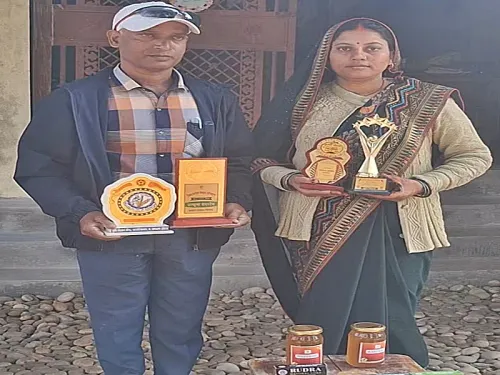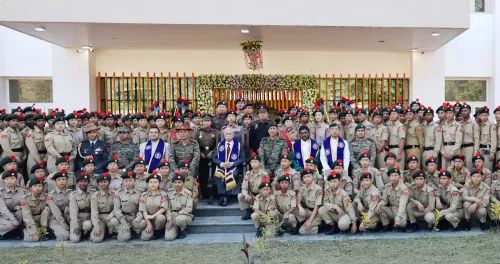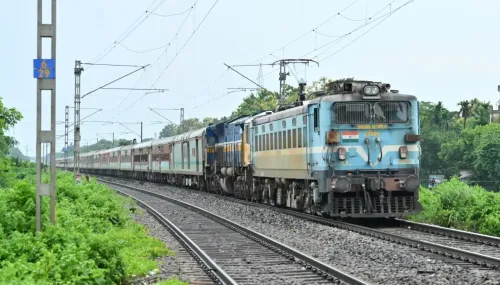Who Are the Seven Arrested in Ahmedabad Over the Trikamji Mandir Land Conspiracy?

Synopsis
Key Takeaways
- Seven arrests made in a land fraud case.
- The accused are linked to Trikamji Mandir land.
- Police registered multiple cases including forgery and cheating.
- Gujarat Land Grabbing Act aims to protect land.
- Significant financial implications are involved.
Ahmedabad, May 18 (NationPress) Seven individuals have been apprehended in relation to a conspiracy aimed at illegally acquiring the Trikamji Mandir land located in Gujarat's Ahmedabad.
The suspects include Babu Bhai Dahyabhai Shah, Mohammad Asgar Abdul Hamid Pathan, Nizamuddin Abdul Rehman Sheikh, Mohammad Bilal Mohammad Hanif Sheikh, Zeeshan Zahid Hussain Qadri, Rohan Imtiyaz Ahmed Qadri, and Saddam Hussein Salimbhai Qureshi.
The Gaekwad Haveli Police detained Bilal Sheikh, a builder and the son of the infamous Hanif Dadhi, in the vicinity of Kachchi Masjid in Jamalpur.
This arrest is tied to a serious land fraud case involving the suspected unlawful acquisition of property linked to the Trikamji Mandir.
Sheikh and his associates are accused of forging documents and conspiring to unlawfully seize the temple land.
In response to a complaint, the police initiated a case under various sections, which include cheating, forgery, and criminal conspiracy.
Authorities disclosed that the accused allegedly crafted fraudulent documents to deceive officials and execute their illegal scheme.
This case has garnered public attention due to the involvement of individuals with prior criminal records and the sensitive nature of temple land disputes in Ahmedabad. The investigation is ongoing, with the possibility of further arrests as police continue their inquiries.
The Gujarat Land Grabbing (Prohibition) Act, 2020, was enacted to prevent unauthorized land occupations and empower the government to take strict actions against offenders.
Under this Act, special courts have been established to accelerate the adjudication of land grabbing cases, targeting resolution within six months.
The Act also permits the attachment of properties obtained through illegal means and requires the formation of a seven-member committee in each district to assess land-grabbing complaints. Since the Act's implementation, the state has received over 11,000 complaints related to land grabbing.
Approximately 5 percent of these cases have led to the registration of First Information Reports (FIRs).
A significant number of complaints relate to private land disputes, with a smaller portion concerning government-owned land.
It is important to note that the value of the land involved in these disputes is significant, with estimates reaching into hundreds of crores of rupees.










